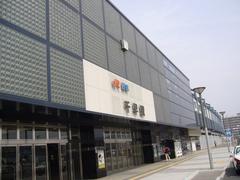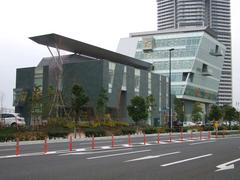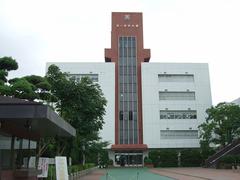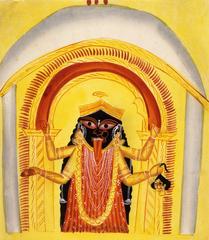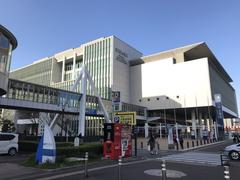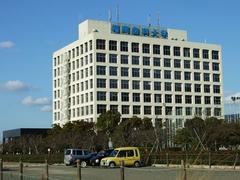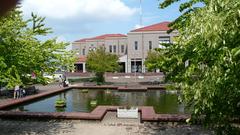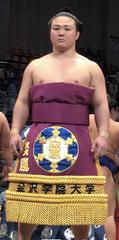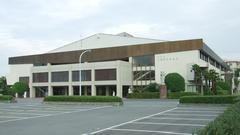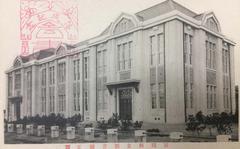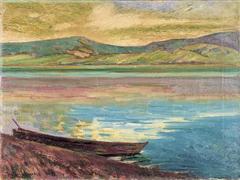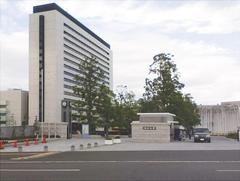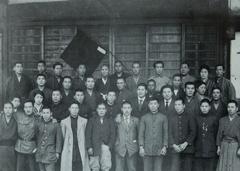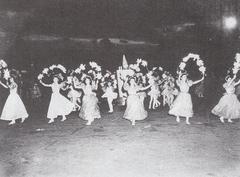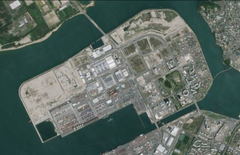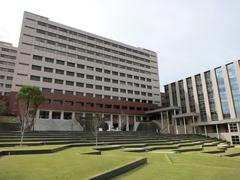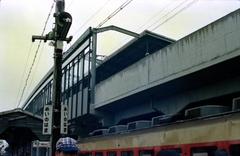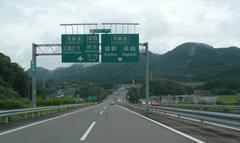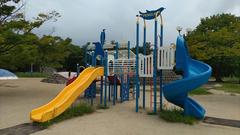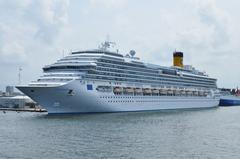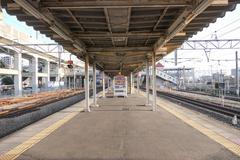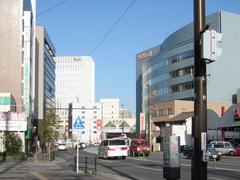
Jōnai Fukuoka Visiting Hours, Tickets, and Historical Sites Guide
Date: 04/07/2025
Introduction to Jōnai in Fukuoka: History and Significance
Located at the heart of Fukuoka City, Jōnai is a living testament to Japan’s Edo-period heritage. This historic district encompasses the ruins of Fukuoka Castle (Maizuru Castle) and is a cultural centerpiece for locals and visitors alike. Built in 1601 by daimyo Kuroda Nagamasa after the Battle of Sekigahara, the castle played a crucial role as the administrative and military headquarters of the Fukuoka Domain. Today, Jōnai is characterized by the remnants of imposing stone walls, moats, and watchtowers that mingle with the serene green expanses of Maizuru Park and neighboring Ohori Park, creating a unique blend of natural and historical beauty.
Jōnai draws visitors throughout the year for its historical significance, lively community, and seasonal events. The area is easily accessible by public transportation, with Ohorikoen and Akasaka subway stations serving as primary gateways. Admission to the castle ruins and parks is free, making Jōnai an inclusive destination for travelers. Seasonal highlights include the famed cherry blossom season and the Hakata Gion Yamakasa festival in July, a UNESCO-recognized celebration that brings Fukuoka’s traditions to life.
This guide presents comprehensive information on visiting hours, ticketing, accessibility, key attractions, and practical tips, while also delving into Jōnai’s historical context and cultural resonance. Whether you are captivated by Japan’s feudal history, interested in vibrant festivals, or seeking tranquil scenery, Jōnai promises an enriching journey in Fukuoka (Japan Guide, Overyourplace, Cityplanet).
Table of Contents
- Discover Jōnai: Exploring the Heart of Fukuoka’s History
- Visiting Jōnai: Hours, Tickets & Accessibility
- Travel Tips and How to Get There
- Nearby Attractions
- Key Historical Features and Visitor Experience
- Preservation and Cultural Significance
- Festivals and Community Life
- Culinary Traditions
- Artistic and Spiritual Heritage
- Accessibility and Visitor Amenities
- Seasonal Events and Festivals
- Practical Tips for Visitors
- Recommended Itinerary for Jōnai
- Family and Group Travel
- Souvenirs and Shopping
- Connectivity and Digital Resources
- FAQ
- Plan Your Visit and Stay Connected
Discover Jōnai: Exploring the Heart of Fukuoka’s History
Jōnai, surrounding the Fukuoka Castle ruins, offers a captivating journey into the region’s feudal heritage. As the historic seat of the Kuroda clan, it was the nucleus of political, military, and cultural life throughout the Edo period. The castle’s strategic position near Hakata Bay underscored its importance in defense and governance, shaping the development of Fukuoka City (Japan Guide).
Early Foundations and Strategic Importance
Built beginning in 1601 by Kuroda Nagamasa, Fukuoka Castle was Kyushu’s largest fortress, designed to control key trade and transport routes. The name “Jōnai” (城内) means “inside the castle,” referencing the area enclosed by the fortifications and moats.
The Edo Period: Political and Cultural Center
Throughout the Edo period (1603–1868), Jōnai thrived as a castle town. Samurai, artisans, merchants, and officials lived and worked within and around the castle complex. The honmaru (main keep), ninomaru (secondary enclosure), and sannomaru (outer enclosure) reflected sophisticated defensive and administrative planning. Today, visitors can still admire the castle’s stone walls, turrets, and gardens that showcase its historical and aesthetic significance (JapanActivity).
Meiji Restoration and Modern Transformation
The castle was decommissioned following the Meiji Restoration in 1871, with much of its infrastructure dismantled. However, key features such as stone walls, gates, and the Tamon Yagura turret endure. The area was later developed into Maizuru Park, blending historic preservation with public recreation (Bespes JT).
Visiting Jōnai: Hours, Tickets & Accessibility
- Maizuru Park (Fukuoka Castle Ruins): Open daily from 6:00 AM to 11:00 PM; entry is free.
- Ohori Park: Open from 5:00 AM to 11:00 PM; free entry.
- Japanese Garden (Ohori Park): 9:00 AM–5:00 PM (last admission 4:30 PM); admission ¥250.
- Fukuoka Art Museum: 9:30 AM–5:30 PM (last admission 5:00 PM); closed Mondays (or the following day if Monday is a national holiday). Tickets ¥200–¥500 depending on the exhibition, with discounts for students and seniors (Fukuoka Art Museum Official Site).
Most outdoor attractions are free of charge. Guided tours and certain special exhibitions may require a fee and advance booking.
Accessibility: Well-maintained, wheelchair-accessible paths are present throughout Maizuru and Ohori Parks, though some areas around the ruins have uneven terrain. Accessible restrooms and ramps are widely available.
Travel Tips and How to Get There
- Access: From Hakata Station, take the subway (Kūkō Line) to Ōhorikōen Station; it’s a short walk to the main attractions. From Fukuoka Airport, the subway ride takes about 20 minutes (The Broke Backpacker).
- Best Times to Visit: Spring (late March–early April) for cherry blossoms and autumn (October–November) for colorful foliage.
- Getting Around: The area is pedestrian-friendly. Bicycle rentals and the Fukuoka City Loop Bus (Green Bus) are also available (Visiting Japan).
Key Attractions and Experiences
Fukuoka Castle Ruins (Maizuru Park)
Explore the remnants of Fukuoka Castle—stone walls, turrets, and gates evoke the castle’s former grandeur. Elevated viewpoints offer panoramic city views, and over 1,000 cherry trees turn the park into a springtime spectacle (Cityplanet).
Ohori Park
Inspired by traditional Chinese gardens, Ohori Park features a large central pond, walking paths, and scenic bridges. The Japanese Garden within the park offers tranquil beauty and traditional tea ceremonies.
Fukuoka Art Museum
Located within Ohori Park, the museum houses a diverse collection of Asian and modern art, as well as Buddhist artifacts. It reopened in 2019 with enhanced facilities (Tokyo Weekender).
Gokoku Shrine
Beside the castle ruins, this Shinto shrine honors those who died in service to Japan and is especially vibrant during New Year and spring festivals (Cityplanet).
Remnants of Samurai and Merchant Quarters
Interpretive signs and occasional guided tours reveal insights into the social and architectural layout of the Edo-period castle town (Nomadasaurus).
Seasonal Events and Festivals
- Fukuoka Castle Cherry Blossom Festival: Late March–early April; night illuminations, food stalls, and historical tours (Matcha).
- Hakata Gion Yamakasa Festival: July; a UNESCO-recognized event with spectacular float races (Gofukuoka).
- Summer Fireworks and Autumn Foliage Viewing: Annual events enhance the park’s atmosphere.
Cultural and Culinary Highlights
Culinary Traditions
Nearby Hakata district is renowned for local specialties such as Hakata ramen and mizutaki (chicken hot pot). During festivals and hanami, food stalls (yatai) offer authentic Fukuoka flavors (Gofukuoka).
Artistic and Spiritual Heritage
Jōnai is a center for traditional and contemporary arts, with the Fukuoka Art Museum and open-air events in the parks. Proximity to shrines like Kushida and Sumiyoshi deepens the area’s spiritual significance (AllAbout-Japan).
Accessibility and Visitor Amenities
- Restrooms: Available throughout Maizuru and Ohori Parks.
- Wheelchair Access: Main paths, museums, and Japanese Garden are accessible.
- Wi-Fi: Free public Wi-Fi in parks and museums (Japan Travel Dreams).
- Lockers: Coin lockers at subway stations and park entrances.
- Family Friendly: Playgrounds and picnic areas; guided tours suit group or family visits (Visiting Japan).
Practical Tips for Visitors
- Weather: Summers are hot and humid; winters are mild. Dress appropriately (Matcha).
- Cash and Cards: Many small vendors prefer cash; cards generally accepted in museums and larger shops.
- Etiquette: Respect shrine customs, keep voices low, and remove hats as required.
- Safety: Fukuoka is very safe. In case of emergencies, dial 119; English-speaking staff are available at major hospitals (Japan Travel Dreams).
Recommended Itinerary
- Morning: Arrive at Ōhorikōen Station, explore Maizuru Park and castle ruins.
- Midday: Visit Fukuoka Art Museum and enjoy lunch at a local eatery.
- Afternoon: Stroll through Ohori Park, take a boat ride, or experience a tea ceremony.
- Evening: Head to Tenjin or Nakasu for dinner at a yatai or izakaya.
Souvenirs and Shopping
Kawabata Shotengai Arcade, Fukuoka’s oldest shopping street, offers traditional crafts and snacks, just a subway ride away from Jōnai (The Broke Backpacker).
Connectivity and Digital Resources
- Wi-Fi: Available in parks and museums.
- Navigation: Google Maps and NAVITIME recommended (Japan Travel Dreams).
- SIM/eSIM: Obtainable at Fukuoka Airport and electronics stores.
Frequently Asked Questions (FAQ)
Q: What are Jōnai’s visiting hours?
A: Maizuru Park and castle ruins are open daily from 6:00 AM to 11:00 PM.
Q: Is there an entrance fee?
A: Entry to outdoor sites is free; museums and special exhibitions may charge a fee.
Q: Are guided tours available?
A: Yes, local operators and museums offer tours in English and Japanese.
Q: Is Jōnai accessible to wheelchair users?
A: Yes, most paths and facilities are accessible, though some historic areas may be uneven.
Q: When are the best times to visit?
A: Late March–early April for cherry blossoms and July for the Hakata Gion Yamakasa festival.
Plan Your Visit and Stay Connected
Jōnai elegantly bridges Fukuoka’s storied past with its vibrant present. With free entry, accessible amenities, and a host of cultural and natural attractions, it’s an ideal destination for every traveler. Use the Audiala app for guided tours and event updates, and follow us on social media for more travel inspiration.
Begin your journey to Jōnai and discover where history and modern life converge in Fukuoka!
References
- This is a sample text. (Japan Guide)
- This is a sample text. (Overyourplace)
- This is a sample text. (Cityplanet)
- This is a sample text. (The Broke Backpacker)
- This is a sample text. (Bespes JT)
- This is a sample text. (Gofukuoka)
- This is a sample text. (Matcha)
- This is a sample text. (JapanActivity)
- This is a sample text. (AllAbout-Japan)
- This is a sample text. (Nomadasaurus)
- This is a sample text. (Fukuoka Art Museum Official Site)
- This is a sample text. (Visiting Japan)
- This is a sample text. (Fun Japan)
- This is a sample text. (Tokyo Weekender)
- This is a sample text. (Living Nomads)
- This is a sample text. (Japan Travel Dreams)
- This is a sample text. (Japanese City)
- This is a sample text. (Minnano Rakuraku)

